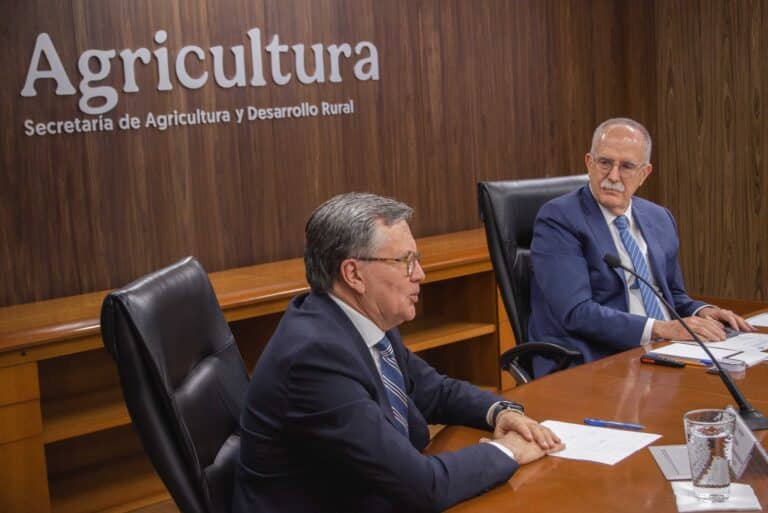The aim is to assist the region’s cocoa producers through technical cooperation, direct advisory services, training and knowledge-sharing.

Kingston, Jamaica. May 16, 2018 (IICA). Cocoa growers in Latin America and the Caribbean stand to benefit from a major agreement between the Inter-American Institute for Cooperation on Agriculture (IICA) and the International Cocoa Organization (ICCO) for the world’s premium category of cocoa bean.
A Memorandum of Understanding was signed in March 2018 between IICA’s Director General, Dr. Manuel Otero, and Dr. Jean-Marc Anga, Executive Director of the ICCO, focusing on productivity, competitiveness, market access, capacity building and climate change resilience. The aim is to assist the region’s cocoa producers through technical cooperation, direct advisory services, training and knowledge-sharing.
As the organization that promotes agricultural and rural development in Latin America and the Caribbean, IICA is conscious that the region’s cocoa growers struggle with challenges such as crop disease, low yield, limited access to finance and restrictions to market entry. Established in 1973, The International Cocoa Organization represents the interests of cocoa producing and consuming countries at a global level. The combined expertise of these entities should ensure the development of a sustainable cocoa economy in this region.
Cocoa’s rich heritage actually dates back thousands of years and its roots can be found in the rainforests of the Amazon Basin of the Americas. Yet, the region that gave the world cocoa and chocolate – one of its favorite guilty pleasures – no longer dominates the market. Africa now commands 75% of world production, with Latin America and the Caribbean cultivating a mere 17%.
Today, the global market recognizes two main categories of cocoa beans: bulk or ordinary beans and on the other hand, what are known as fine and flavor beans. The Latin American and Caribbean region is home to the vast majority of fine and flavor-cocoa producing countries.
Fine and flavor is recognized as the world’s premium cocoa. What sets it apart from the more widely traded bulk cocoa is its distinctive aromas and flavors. Much like a sophisticated wine, fine and flavor cocoa beans offer consumers chocolates with a diversity of tastes derived from seven basic profiles described as floral, caramel, fruity, nutty, spicy, earthy and even vegetative.
Flavor expression in cocoa beans is dependent on genetics of the cocoa tree, terroir and bean fermentation, drying and conching in making chocolate. However, more and more, the knowledge and skills required to bring out the best in Fine and Flavor cocoa beans are being lost in the Latin America and the Caribbean.
However, in a meeting last year with IICA Jamaica Representative, Dr. Elizabeth Johnson, Dr. Anga, expressed the willingness of the ICCO to strengthen relations with Fine and Flavor cocoa-producing countries and to help revitalize and to expand this cocoa sector in the region.
Now that the MOU has been finalized and signed, its importance cannot be overstated. Fine and flavor harvesting and fermentation are particularly delicate, labor intensive and costly. A revitalized and sustainable industry could do much to transform the fortunes of the region’s over 250,000 cocoa producers: improving livelihoods, furthering rural development, generating opportunities for youth and women thereby impacting millions of lives in the region’s cocoa value chain.
Similarly, the rise of cocoa and chocolate’s popularity in emerging markets, an appreciation for premium chocolate and health benefits of dark chocolate spell new possibilities for a region that has not yet tapped into the vast economic opportunities in producing value added products such as cocoa butter, nibs, liqueurs, spreads, cosmetics, health and wellness products. Dark chocolate can contain antioxidants and flavonoids associated with good heart health, cancer fighting properties and better cognitive functions. One ounce or less of dark chocolate per day is all that’s required to reap benefits.
Twenty-four of IICA’s 34-member countries are fine and flavor producers. Dr. Johnson, who has expertise in the utilization and conservation of plant genetic resources such as cocoa, has been designated by IICA to spearhead its efforts in this promising venture.
For more information contact:
Elizabeth Johnson, Representative – IICA Delegation in Jamaica











